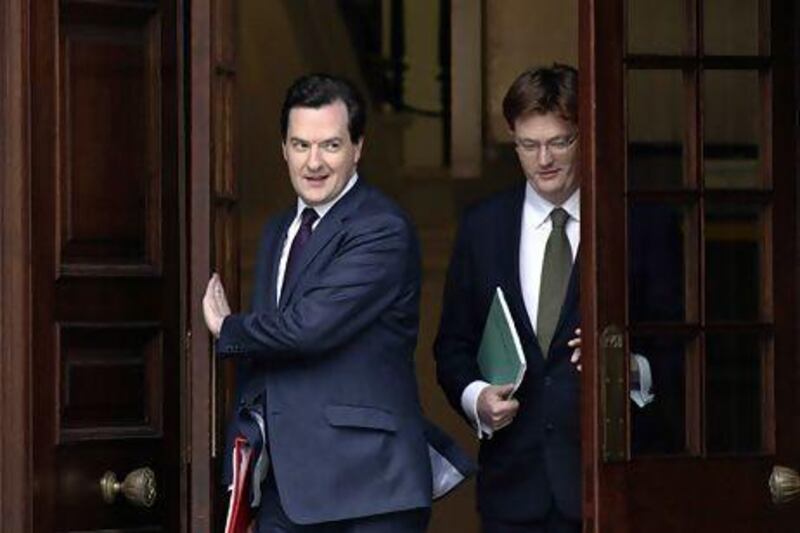Owners of prime central London property based in the Arabian Gulf breathed a momentary sigh of relief yesterday as Britain's finance minister George Osborne ruled out introducing a long-touted "mansion tax" in his autumn statement.
Tax experts have been speculating for months that the government could introduce the yearly levy of up to £140,000 (Dh827,486) on homes worth more than £2 million after its coalition partner the Liberal Democrats proposed the measure in their 2010 election manifesto.
Speaking in front of parliament, Mr Osborne told MPs: "We won't introduce a new tax on property. This would require a revaluation of hundreds of thousands of homes.
"In my view, it would be intrusive, expensive to levy, and raise little, and the temptation for future chancellors to bring ever more homes into its net would be irresistible. So we're not having a new homes tax."
Mr Osborne also ruled out the Liberal Democrat proposal to increase the amount of council tax paid on more expensive properties.
Agents representing wealthy investors expressed their delight as the ruling. "This is welcome news for the London market," said Liam Bailey, the head of residential research at Knight Frank. "Sales volumes are already down after the government introduced previous tax measures earlier this year and it didn't need more taxes."
However, wealthy overseas investors who own property through corporate structures may still have to pay up.
Next week the British government will publish further information on proposed increases in stamp duty.
"We've already raised stamp duty on multimillion pound-homes, and next week we will publish the legislation to stop the richest avoiding stamp duty," Mr Osborne told parliament.
Experts say Mr Osborne could still introduce some form of annual charge of up to £140,000 on luxury property held through company structures next week and will also consider extending capital gains tax to property held through offshore companies.
The prospect has already provoked a number of tax avoidance schemes that are being offered to UAE and other property owners.
"For anyone who holds prime London property directly today's announcement is very good news," added Mr Bailey. "The information we are getting from our lawyers and accountants are that many wealthy clients are already de-enveloping while others are waiting to see what happens."
"De-enveloping" refers to unwinding property ownership in company structures.
"Clearly the news shows the government have come to their senses after their previous legislation failed to register any increased taxes," added Naomi Heaton, the chief executive of London Central Portfolio, a fund management firm that specialises in prime London homes.
"Early news emerging from the draft legislation, to be announced next week, suggests there may be further good news to come."
House prices in the most well-heeled parts of the United Kingdom's capital have grown rapidly since October 2010. According to Knight Frank, prices in the poshest areas around Hyde Park and Regent's Park rose by a total 20.6 per cent in the past two years.
In March last year, the government increased stamp duty to 5 per cent for properties above £1m. Then last March, stamp duty was increased further to 7 per cent for people buying properties over £2m in their own name and 15 per cent through corporate vehicles.
According to the prime London property agent Harrods Estates, GCC investors accounted for 40 per cent of its total sales last year, with buyers from the UAE, Bahrain, Qatar and Saudi Arabia spending an average of £3.9m per single transaction.
Last month, Land Registry data revealed that the volume of sales of homes valued at between £2m and £5m across England and Wales declined 30 per cent during the third quarter of this year compared with the previous year.
In prime central London, sales volumes fell 9 per cent over the same period as potential investors waited to see what measures the government would introduce.





